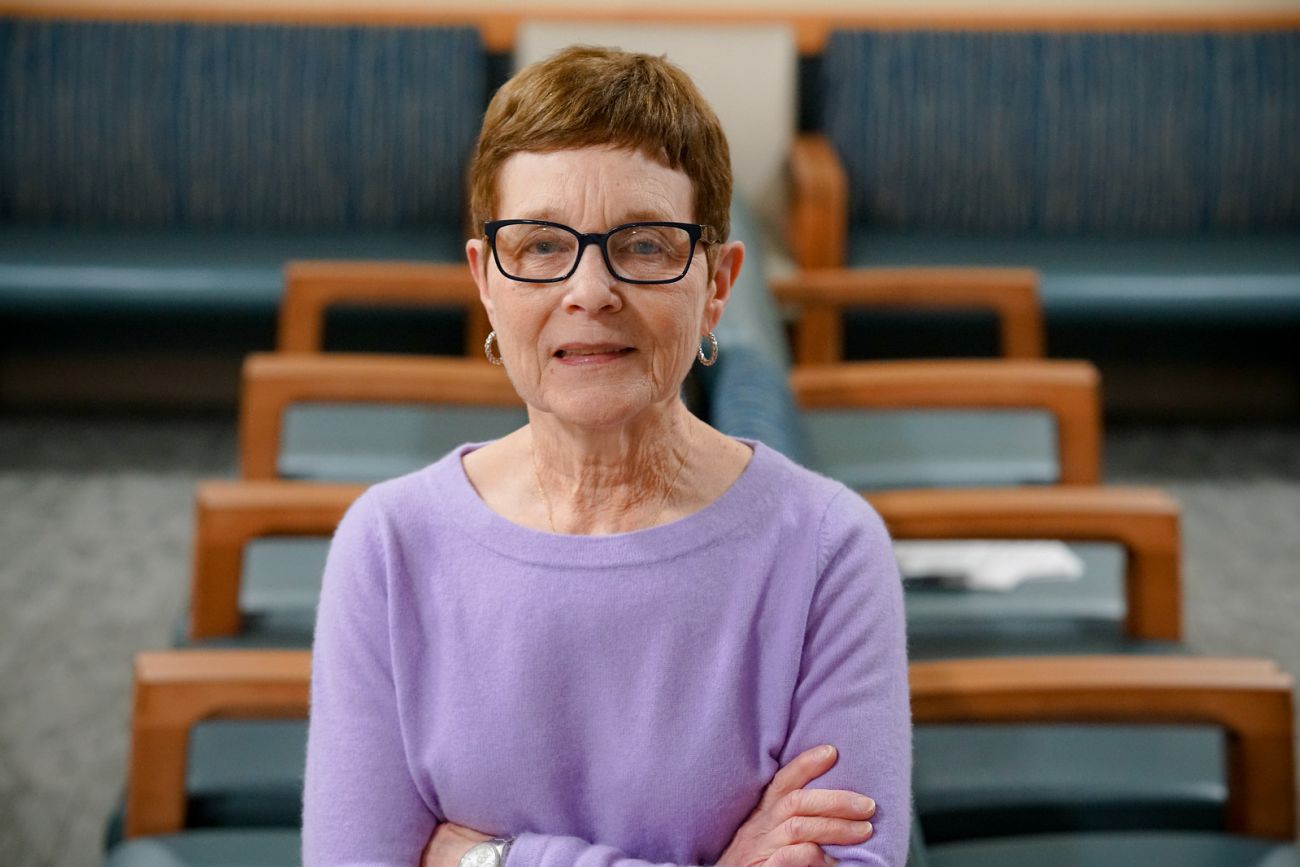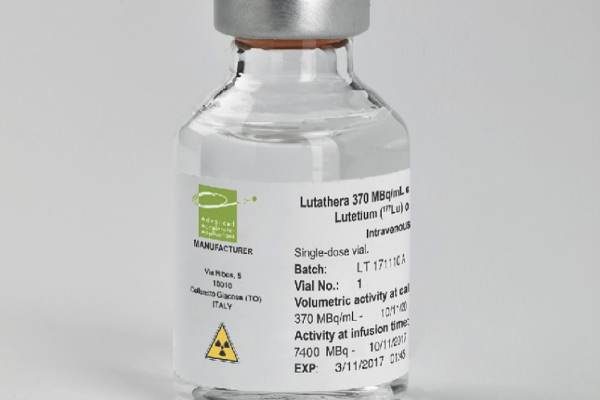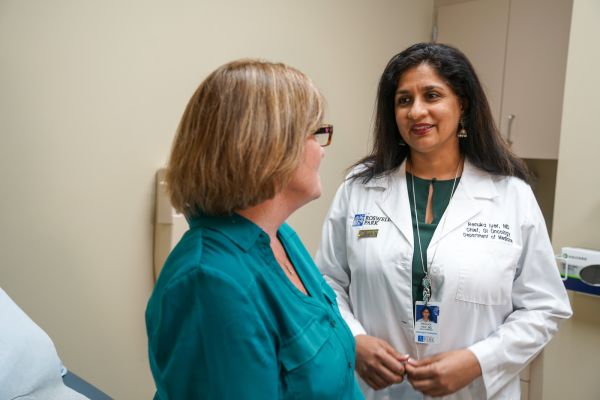A 'Roller Coaster Ride' to a NET Diagnosis
In October 2017, while attending a family wedding in Raleigh, NC, Elaine Nydahl experienced extreme pain in her abdomen. With symptoms that mirrored a gallbladder attack, she visited the emergency room at Duke University Hospital. She was discharged with a diagnosis that sludge had been detected in her gallbladder and that she most likely had a viral infection; she was advised to follow up with a gastroenterologist. When she started feeling unwell again in May 2018, she visited her family doctor, who found nothing unusual.
“A week after visiting my doctor, the pain was so bad that I went to Kenmore Mercy Hospital, and this time a CT scan revealed a large tumor on my liver,” recalls Elaine. “And then began the roller coaster ride to discovering what was causing the pain and other problems that I’d been experiencing.”
Answers at Last
After multiple visits to gastroenterologists and radiologists — and hearing many opinions about her symptoms — Elaine sought advice from Roswell Park, where she met Renuka Iyer, MD, former Co-Director of the Liver and Pancreas Tumor Center. A gallium scan — an advanced procedure recently approved by the FDA — revealed a 10-centimeter tumor on her liver, as well as smaller neuroendocrine tumors (NETs) on her liver, bones and sternum that were affecting her breathing.
“Even though it wasn’t what I was hoping to hear, I finally felt I was getting the answers I’d been seeking for more than a year,” says Elaine. With a clear diagnosis, her next step was a two-hour meeting with Dr. Iyer, along with specialists Lori McDougald, MS, RN, NP, and Cheryl Raczyk, PA, to discuss her medical history and treatment. The team recommended ablation — a procedure that uses high-energy waves to destroy cancer cells — and transarterial chemoembolization (TACE), in which anticancer drugs are released into blood vessels near the tumor, killing cancer cells while leaving healthy liver cells unharmed.
“The procedures were more difficult than I expected, and I had to take three weeks off work, including being admitted to Roswell for six days to recover,” says Elaine. “While the side effects were very challenging for me to manage, the care I got at Roswell was unbelievable. Everybody, from doctors and nurses to cleaning staff, made me feel so valued and cared for during that difficult time.”
Neuroendocrine Tumor Biobank
The Roswell Park NET Biobank is a unique resource dedicated to advancing the field of neuroendocrine tumor management through molecular and genetic research.
Support from Family and Colleagues
Support has been an important part of Elaine’s story. A widow, she has been fortunate to count on help from relatives — including her two children, Andrew and Hanna — and colleagues at work. She has met with a cancer coach at Roswell Park and is looking for a support group to join.
Last year, while attending Roswell Park’s Cancer Survivor’s Workshop, she learned how rare her cancer is: “Everyone was given a small colored ribbon pin that identified their type of cancer. I learned that day how rare my type of cancer was, when only one other person had the same color I did. What I’ve got is pretty uncommon, and that can make it difficult to find people who understand what I’m going through.”
In the meantime, Elaine stays positive. Her tumor has shrunk from 10 to 5.4 centimeters, and even though the cancer continues to spread, its progress is slow. She’s been back to working full time since August and is determined to live her best life possible, keeping options open for repeating procedures or trying new treatments.
“For the most part, I’m feeling pretty good,” says Elaine. “I know that what I have is not curable, so I try to treat it as a chronic disease instead of cancer. I can live with a chronic disease.”
Editor’s Note: Cancer patient outcomes and experiences may vary, even for those with the same type of cancer. An individual patient’s story should not be used as a prediction of how another patient will respond to treatment. Roswell Park is transparent about the survival rates of our patients as compared to national standards, and provides this information, when available, within the cancer type sections of this website.


